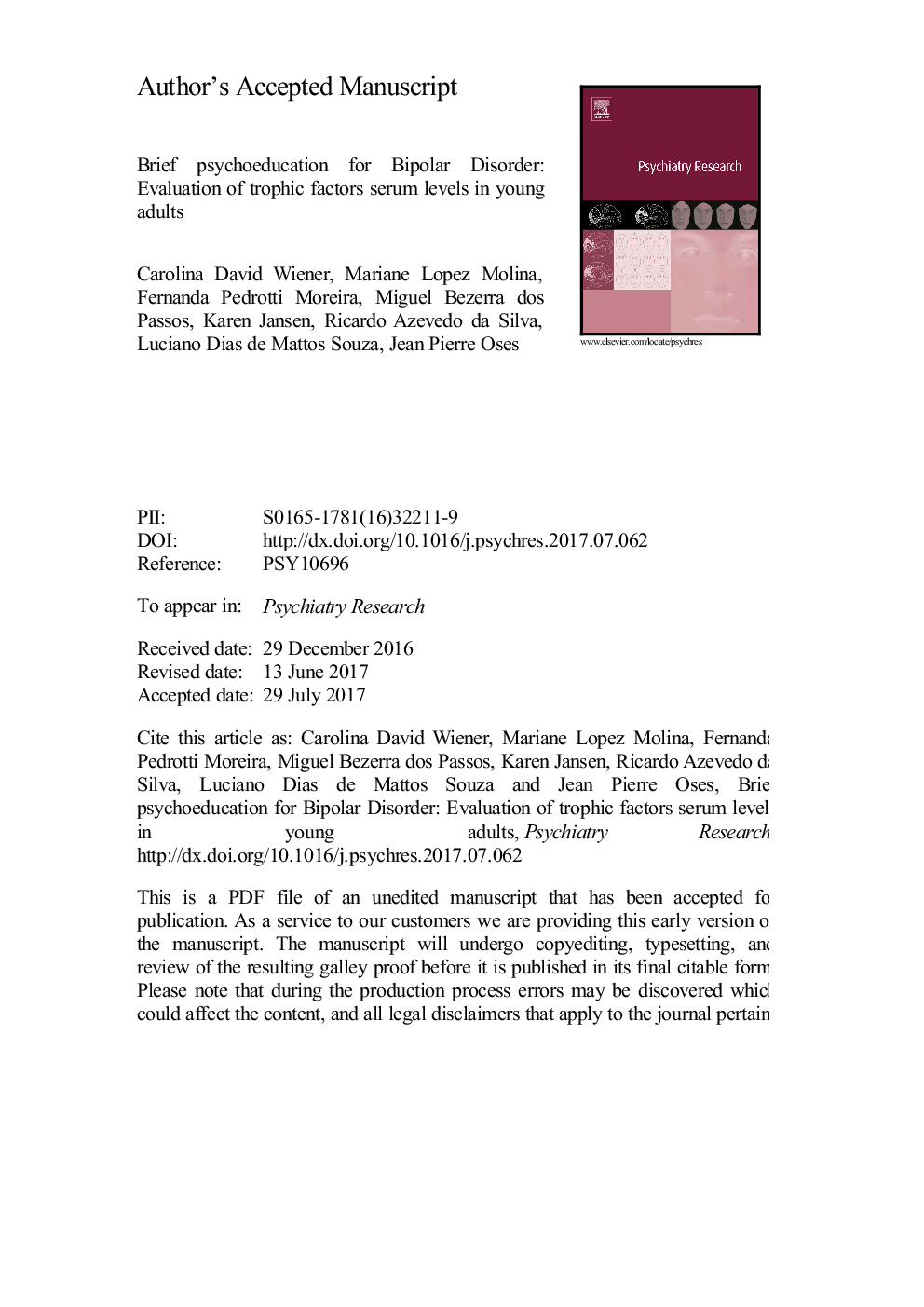ترجمه فارسی عنوان مقاله
روانشناسی روانشناختی برای اختلال دوقطبی: ارزیابی عوامل تروفیک سرم در بزرگسالان جوان
عنوان انگلیسی
Brief psychoeducation for bipolar disorder: Evaluation of trophic factors serum levels in young adults
| کد مقاله | سال انتشار | تعداد صفحات مقاله انگلیسی |
|---|---|---|
| 125324 | 2017 | 22 صفحه PDF |
منبع

Publisher : Elsevier - Science Direct (الزویر - ساینس دایرکت)
Journal : Psychiatry Research, Volume 257, November 2017, Pages 367-371
ترجمه کلمات کلیدی
روانشناسی فیزیکی، فاکتورهای تروفی اختلال دو قطبی،
کلمات کلیدی انگلیسی
Brief psychoeducation; Trophic factors; Bipolar disorder;

